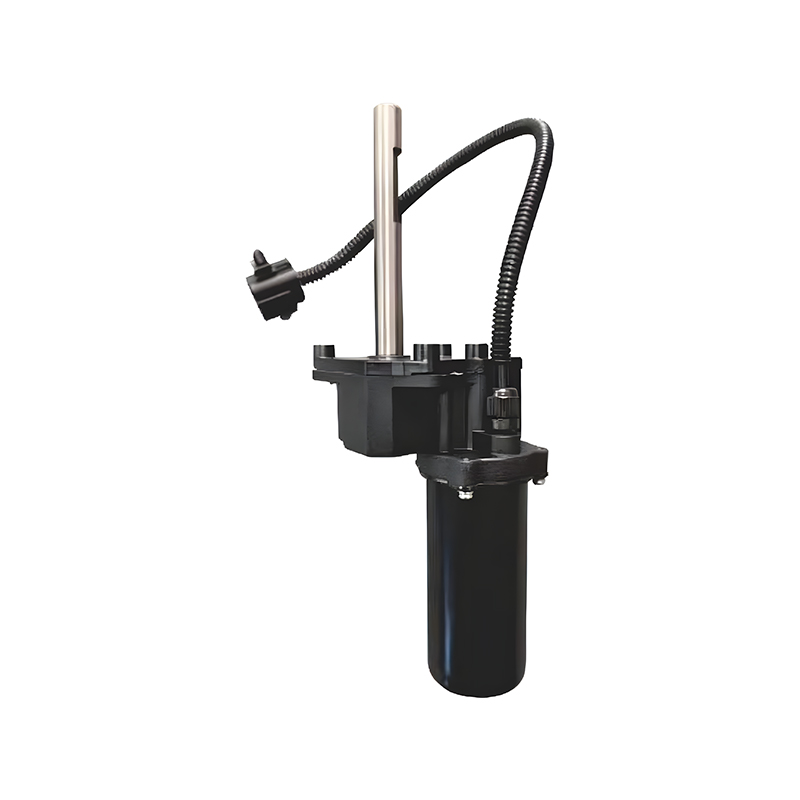The evolution of urban transportation has seen significant advancements over the past few years, particularly in the integration of innovative technologies designed to optimize energy use and reduce environmental impact. One such innovation, the pedal motor, has played a crucial role in transforming the landscape of urban mobility. These motors are not only contributing to more sustainable transportation options but also ensuring that urban infrastructure can meet the growing demands of city life.

The Role of Pedal Motors in Urban Mobility
Pedal motors, primarily used in electric bicycles and pedal-assisted vehicles, offer a unique advantage by combining human effort with electric assistance. This synergy between manual pedaling and motorized support enables riders to cover longer distances with less effort, making it an ideal solution for city commuters. The pedal motor system has revolutionized the way people move around urban areas, providing a practical alternative to conventional cars and public transportation.
By incorporating these motors, urban dwellers can reduce their dependence on fuel-powered vehicles, pilot to less congestion and pollution. This is especially important as cities continue to grow and face challenges such as traffic congestion and air quality deterioration. Pedal motors are proving to be an effective way to navigate dense city environments without the need for large, fuel-consuming vehicles.
Improving Accessibility and Mobility
A key benefit of pedal motor technology is its accessibility. These motors make cycling a viable transportation option for individuals who might not have the physical strength or stamina to cycle long distances on their own. For many, this means having the freedom to travel across urban landscapes without the fatigue that often accompanies traditional cycling.
In addition to personal use, pedal motors are also increasingly being integrated into shared mobility services. Electric bike-sharing programs have expanded rapidly in cities around the world, providing an affordable and flexible means of transportation. These services often rely on pedal motor-powered bikes, allowing a broad range of people to participate in the sharing economy while less their carbon footprints.
Integration with Other Urban Systems
While pedal motors are a standout in the realm of urban transport, another innovation that plays a vital role in enhancing the efficiency of modern vehicles is the window regulator machine. These machines are responsible for the smooth operation of windows in various forms of transportation, from cars to buses and trains. In an urban environment, the seamless functioning of all vehicle systems, including window regulators, is essential for passenger comfort and safety.
Window regulator machines allow for precise control over window movement, ensuring that windows open and close without issues. In the context of electric and pedal motor vehicles, the integration of efficient window regulators helps maintain the overall functionality of the vehicle, contributing to a more comfortable and safer commuting experience. As electric and pedal-assisted vehicles become more common, innovations in window regulator technology will continue to enhance the passenger experience.
The Environmental Impact of Pedal Motor and Window Regulator Systems
As cities look for ways to become more sustainable, pedal motors and efficient window regulator machines are part of the solution. Pedal motors, by reducing the reliance on fossil fuels, contribute to lowering greenhouse gas emissions. Similarly, by improving the efficiency of vehicle systems, such as windows, these innovations support the broader goals of sustainability in urban transport.
The environmental impact of pedal motor technology cannot be overstated. It enables users to reduce their carbon footprint by replacing conventional vehicle use with a greener alternative. The reduced energy consumption of pedal-assisted vehicles is a significant factor in the broader effort to mitigate climate change. On the other hand, the window regulator machine, by improving vehicle energy efficiency, ensures that vehicles use less power to perform essential functions.
A Collaborative Future for Urban Transport
Looking ahead, the future of urban transport lies in the continued integration of pedal motor systems and related technologies, such as window regulators, into broader transport ecosystems. Cities are beginning to prioritize green transportation solutions, and innovations like these are at the forefront of this transition. Whether it's reducing traffic congestion, improving air quality, or offering a more sustainable mode of transportation, pedal motors and window regulator machines will continue to play an integral role in shaping the future of urban mobility.
Your email address will not be published. Required field are marked*